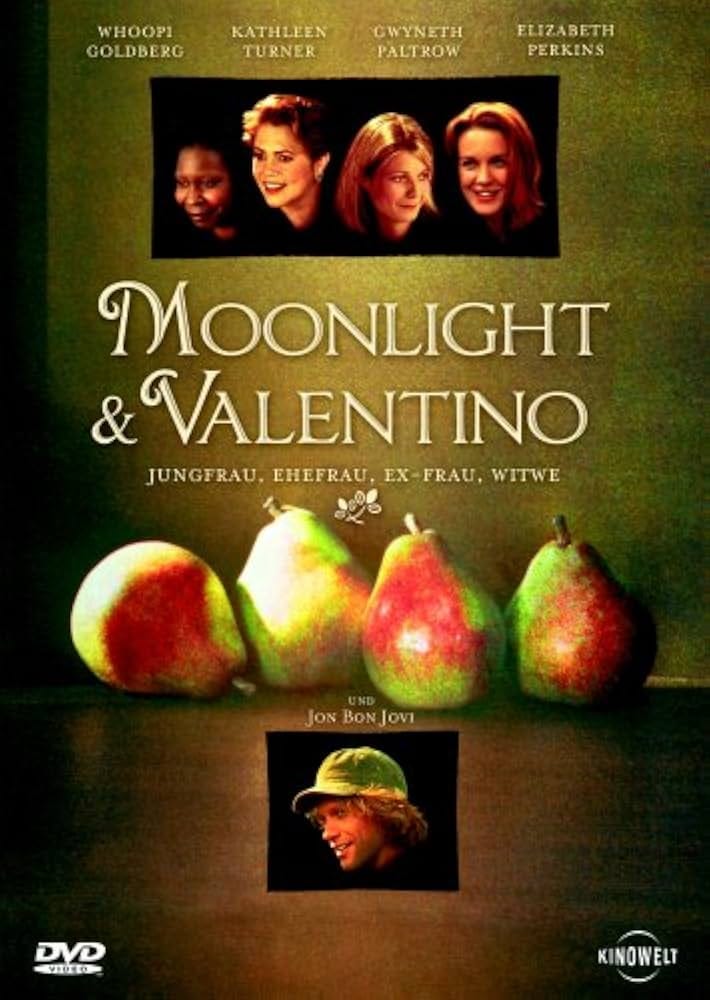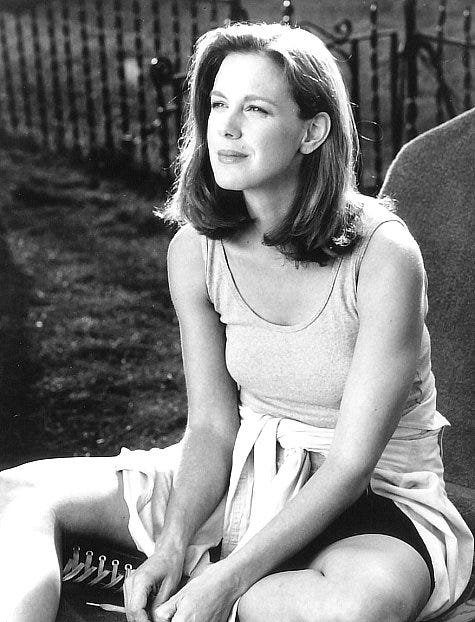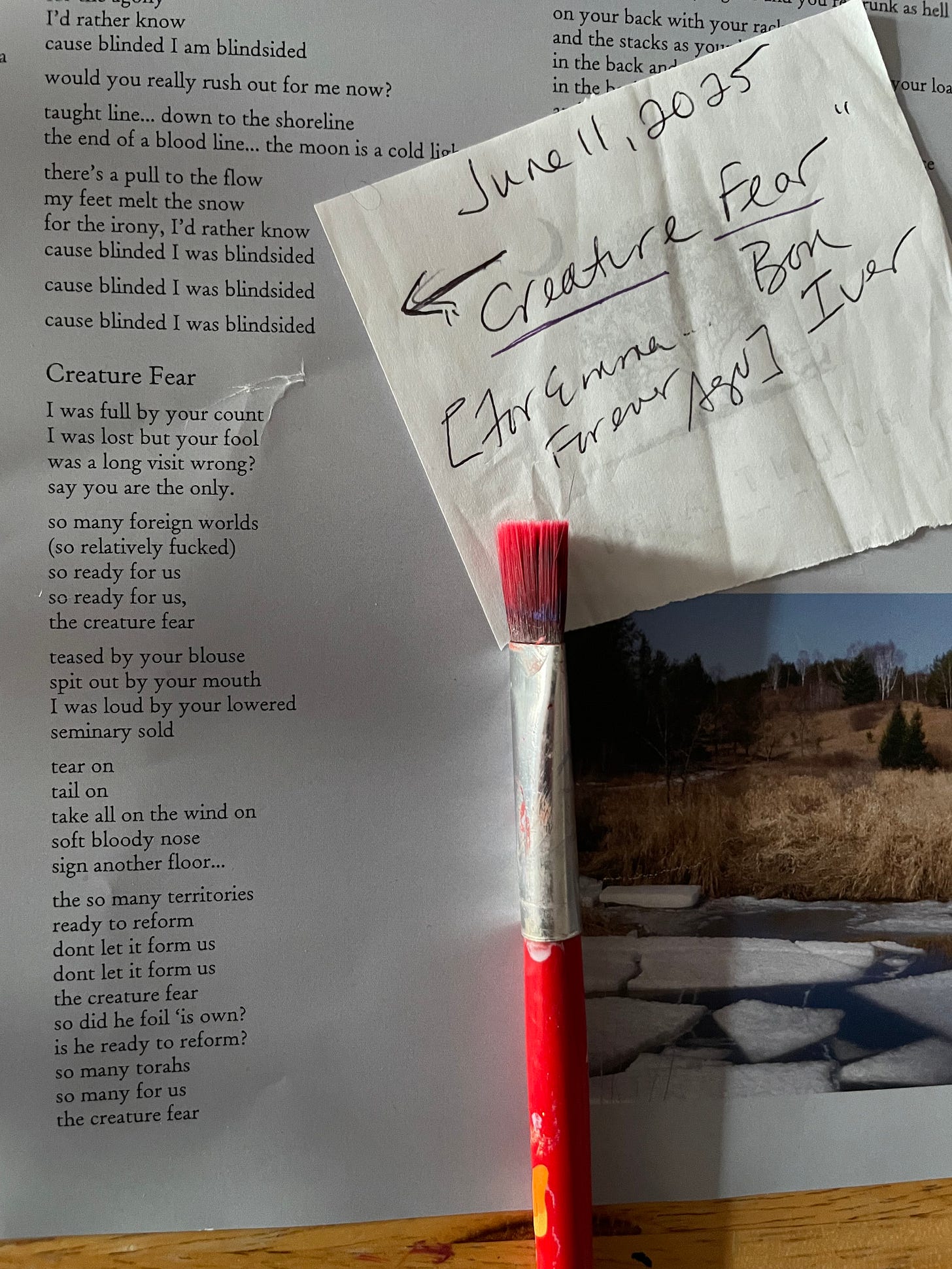Film: Moonlight and Valentino (1995)
Directed by: David Anspaugh
Written by: Ellen Simon
Starring: Elizabeth Perkins, Gwyneth Paltrow, Whoopi Goldbert, Kathleen Turner, Jon Bon Jovie
Dear Poetry Professors and Teachers, and Mothers, and Lovers of Heroes,
I remember being a student-teacher for one semester at a girls Catholic high school. I loved it there. It was regal and the buildings were made of stone, and the school gave us free lunch! They also gave us free soft pretzels, and coffee was available for free in the mornings!
The teacher I was student-teaching for was an older man, a father, who had 6 kids of his own, and whose character was blanketly wonderful. He was perfect for me to learn from.
Mr. S had his students memorize poems that he wrote on the board in chalk. That helped me memorize the poems, too. One of the poems that he wrote on the board was Emily Dickinson’s “I’m Nobody, Who Are You?”
I remember this poem today because of him. I sat in the back of the room and watched his lessons. I can’t remember what the high school girls said about the poems, but I was consistently impressed by their intelligence, their perspicacity. After the school day, Mr. S would come sit down with me in the back of the room, and we’d talk about the poems, the discussions, and he’d ask me questions about me. He cared about who I was as a person. He knew people were not numbers or titles. He looked at me, he shared his soul with me, and he welcomed my soul into our conversation. (He also read my short stories and gave me feedback.)
I’m nobody. Who are you?
I first saw the movie Moonlight and Valentino on my living room television growing up in south Jersey. We had cable, and I watched a lot of movies. Sometimes, I would plan my entire Sunday around what was on television, using the TV Guide. There was a season where Moonlight and Valentino was playing on HBO pretty consistently, and I watched it over and over again. I loved the main character, Rebecca, played by Elizabeth Perkins, and in this movie she is a poetry professor. (In my opinion, Elizabeth Perkins is an emblem of healthy sensuality and beauty and femininity.) I also loved the younger sister, Lucy, played by Gwyneth Paltrow. I thought about the name “Lucy,” and how I’d like to maybe name a daughter “Lucy” one day—if I had a daughter. The relationship between these sisters was so lovely and sweet. I didn’t have a sister, but I imagined that if I had one, we would interact the way Rebecca and Lucy did. Rebecca, the older sister, is calm and caring, and she smiles wanly rather than ever getting loud. Lucy, on the other hand, is like a little girl who is allowed to be petulant and complain, and also be sweet, and also be awkward. No one is telling Lucy how to be—just loving her for who she is (even when she is not loving herself).
The story of Moonlight and Valentino is about Rebecca (Elizabeth Perkins) grieving the sudden loss of her husband. She had a loving marriage that really worked, but her husband was unlucky one day while jogging on an open road. Women who love Rebecca come in to support her as she grieves. Alberta (played by Kathleen Turner) is the former stepmother to the girls, and she doesn’t leave their lives even after she divorces their father. (The biological mother has been dead for years.) Sylvie (played by Whoopi Goldberg) is Rebecca’s best friend, who is a mom and sometimes-artist, who is unhappy in her marriage, and obsessed with all the ways she is insignificant.
Grieving is an action, and it is an energetic force, and I always remembered that this movie was about grieving, in such a quiet way. In her sadness and loss, Rebecca does not wail or stomp her feet. She holds back her tears, makes dry jokes and comments, and tries to hide behind her job until she can’t hide behind her job. She realizes, when going back in front of the literature classroom, that words are so limited in their capacity to explain and experience. On her first day back in her role as poetry professor, she tells her students—one of whom is Steven (played by Jeremy Sisto)—to write a poem without words.
(Jeremy Sisto in the 90s was freaking gucci.)
The other part of this movie that stuck with me from the time I was a teenager was Rebecca deciding to change her hair so that it had a wind-blown look. She says she wants her hair to look like she has been driving with the window open. Simultaneously, and conveniently, a handsome young male painter is painting the outside of her house. He notices her hair is different, and tells her so.
The painter—who is never given a name, but played by Jon Bon Jovi—has his own wind-blown, wind-swept hair, and his mere presence makes everything better for all four women. He’s adorable, and wholesome-looking, and he performs a function that is…very functional. Women need that. We really, really need painters and functional men in jeans. If they have pick-up trucks and tousled, wily hair, that’s cool, too.
I’m talking around the movie and yet, the movie really isn’t about anything that involves a plot or a climax or a nifty resolution of any kind. It is a movie about grief, and the unexpected turns of life, and how people find ways to cope. They get painters with great hair, wearing great jeans, who show up at night to paint their houses. (Which is weird, and inappropriate, but also cool.) They sneak onto other people’s property because there’s a lake to look at from the deck, and they want to dream a little. They write poems without words, and they write poems with words, and they scrub the tiles in their bathrooms when the mood strikes them. Grieving people dance in graveyards and paint their faces and yell at the people who love them, and make up, and cry, sometimes, too.
Loss of any kind may inspire a person to act differently in their lives. In the best cases, loss can inspire a person to appreciate what they have, rather than dwell on what they don’t have. Loss brings perspective that people without much loss may not know. Therefore, is loss just change? Is all change, just loss? Are all losses, gains of a new dimension? Are all gains, losses of another kind?
Life is beautiful and wonderful, and also absurd, and hard, and harrowing.
Life is everywhere.
Life—as poet Anne Sexton says in “Some Foreign Letters”—
“is a trick, is a kitten in a sack. “
Isn’t it dreary, to be somebody? Emily Dickinson asks.
Isn’t it much better to be a person?
As a person, your form takes shape in the midst of the clouds and fog, and you exist beyond a screen or a mirage. You’re real, and pulsing, and wounded, and a challenge. And you can’t be undone or unmade. You just have to be witnessed, and experienced, and engaged with as you are.
A person is strangely rare.
Actors—especially the women in this film—make personhood happen on the screen. What a gift, and a service. It is care of their talent, their dedication, helpful direction, and an excellent screenplay by Ellen Simon.
Oh, and then there are painters. Are painters people, too?
Not in this movie. The painter is just a dream come true.
Yours in Personhood,
Ms. Wonderful
P.S. You can rent or buy Moonlight and Valentino on Fandango and Paramount. (This is the kind of movie you kind of have to go looking for.)
Full Moon Vinyl Track
Choo-ey/Chewy Moon








